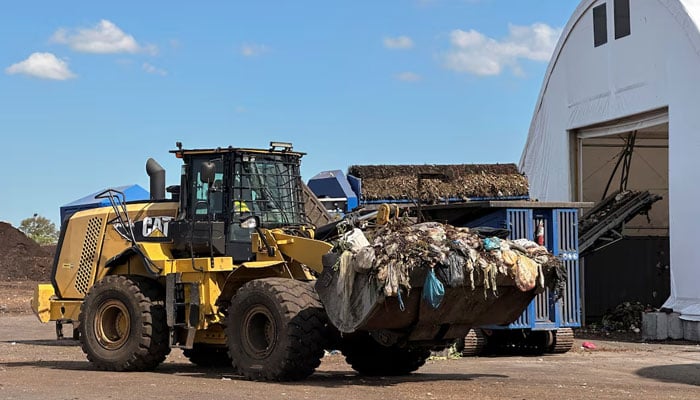Select Language:
In many cities, food scraps, yard waste, and greasy pizza boxes often end up in landfills. However, in New York City, these items are transformed into something incredibly valuable—often called “black gold.”
Jennifer McDonnell, the Deputy Commissioner for Solid Waste Management at NYC’s Department of Sanitation, explains, “We produce high-quality compost that benefits the entire city and helps boost soil health.”
The Staten Island Compost Facility, operated by Denali Water Solutions, has traditionally processed landscaper waste, but now it also handles residential organic waste. On a typical day, the facility receives between 100 and 150 tons of organic material, which can increase to 250 tons during heavy leaf fall.
When the waste arrives, it’s shredded, screened, and placed into aerated static pile bunkers to begin composting. These piles heat up beyond 100°F (37.8°C), eliminating pathogens and weed seeds.
Over several weeks, microbes, fungi, bacteria, and insects work to break down the material. After curing and screening, the result is a dark, nutrient-rich compost.
The city sells some of this compost to landscapers, while the remainder is provided free of charge to residents, schools, and community gardens.
McDonnell notes, “This year, we’ve distributed nearly 6 million pounds of compost throughout NYC.” This compost benefits soil health, aids stormwater management, and keeps parks and green spaces lush.
Nationwide, household food scraps and yard waste constitute the largest portion of municipal waste. When sent to landfills, these organic materials produce methane, a powerful greenhouse gas.
Eric Goldstein, NYC’s Environment Director, emphasizes, “To combat the climate crisis, we need to stop sending our food scraps to landfills and start composting them.”
The city’s organics collection program mandates residents to separate food scraps, food-soiled paper, and yard waste from regular trash. Although enforcement paused earlier this year, it’s expected to resume in 2026.






